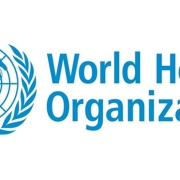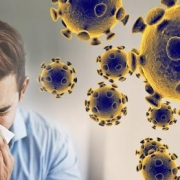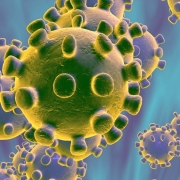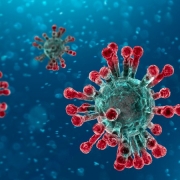Tag Archive for: uk
Who funds the WHO?
/in Gadgets / Tech/by billywright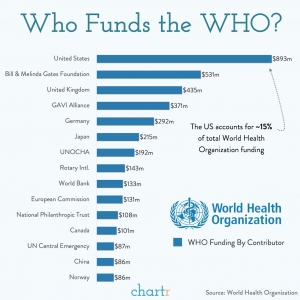
The WHO, the World Health Organisation have been in the news a lot lately. Giving us daily updates on the world wide pandemic that we are all currently experiencing. It’s been in the news for other reasons lately however. As President Trump recently announced that he would be halting US funding to the World Health Organisation (WHO). According to Trump, the WHO, are guilty of “severely mismanaging and covering up the spread of the coronavirus”.
So, how much does the US give to the WHO?
The latest figures (above) from the WHO show that the US gave $893m for its latest 2 year budget cycle. That accounts for about 15% of the groups total funding base. Furthermore it’s 10x that of the contribution of China.
While it goes without saying, retracting funding to the WHO. In one of the worlds worst global pandemics for a century has been heavily criticised. However, Trump hasn’t been the only one to criticise the WHO for it’s advice and actions at the start of the pandemic.
Contributors to the WHO is a really long list, coming in at #2 is the Bill and Melinda Gates foundation. They are soon followed by the UK, the GAVI Alliance, Germany, Japan and other organisations such as the World Bank.
China?
China contributed just $86M to the most recent funding cycle. This is on par with Norway. A country with a population of 1/260th of it’s size.
Keep up to date with everything How To Kill An Hour by signing up to our newsletter by clicking here!
Let us know what you think of the show by clicking here!
Click here to subscribe to our YouTube Channel to see more amazing ways to kill time!
Follow us on Twitch by clicking here!
Coronavirus Safety Tips
/in Gadgets / Tech/by billywrightCoronavirus Safety is a very important thing, so we had a look around the net and compiled the best practices for you to best look after your health!
What can I do to protect myself and prevent the spread of disease?
Regular hand washing, covering mouth and nose when coughing and sneezing, thoroughly cooking meat and eggs.
Stand 1 meter away from anyone showing symptoms of respiratory illness such as coughing and sneezing. (WHO)
Coronavirus Safety: Protection measures for everyone
While chances of infection are low, stay aware of the latest information on on the WHO website and via news outlets.
COVID-19 is still affecting mostly people in China and some outbreaks in other countries (such as Italy)
Most people who become infected will experience mild illness and recover but will be more severe for others. So to protect yourself and those around you:
- Regularly and thoroughly clean your hands with an alcohol-based hand rub or wash them with soap and water.
Why? Washing your hands with soap and water or using alcohol-based hand rub kills viruses that may be on your hands.
- Maintain at least 1 metre (3 feet) distance between yourself and anyone who is coughing or sneezing.
Why? When someone coughs or sneezes they spray small liquid droplets from their nose or mouth which may contain virus. If you are too close, you can breathe in the droplets, including the COVID-19 virus if the person coughing has the disease.
- Avoid touching eyes, nose and mouth.
Why? Hands touch many surfaces and can pick up viruses. Once contaminated, hands can transfer the virus to your eyes, nose or mouth. From there, the virus can enter your body and can make you sick.
- Make sure you, and the people around you, follow good respiratory hygiene. This means covering your mouth and nose with your bent elbow or tissue when you cough or sneeze. Then dispose of the used tissue immediately.
Why? Droplets spread virus. By following good respiratory hygiene you protect the people around you from viruses such as cold, flu and COVID-19.
Coronavirus Safety: Protection measures for everyone cont.
- Stay home if you feel unwell. If you have a fever, cough and difficulty breathing, seek medical attention and call in advance. Follow the directions of your local health authority.
Why? National and local authorities will have the most up to date information on the situation in your area. Calling in advance will allow your health care provider to quickly direct you to the right health facility. This will also protect you and help prevent spread of viruses and other infections.
- Stay informed on the latest developments about COVID-19. Follow advice given by your healthcare provider, your national and local public health authority or your employer on how to protect yourself and others from COVID-19.
Why? National and local authorities will have the most up to date information on whether COVID-19 is spreading in your area. They are best placed to advise on what people in your area should be doing to protect themselves.
Protection measures for persons who are in or have recently visited (past 14 days) areas where COVID-19 is spreading
- Follow the guidance outlined above. (Protection measures for everyone)
- Stay at home if you begin to feel unwell, even with mild symptoms such as headache and slight runny nose, until you recover.
Why? Avoiding contact with others and visits to medical facilities will allow these facilities to operate more effectively and help protect you and others from possible COVID-19 and other viruses.
- If you develop fever, cough and difficulty breathing, seek medical advice promptly as this may be due to a respiratory infection or other serious condition. Call in advance and tell your provider of any recent travel or contact with travelers.
Why? Calling in advance will allow your health care provider to quickly direct you to the right health facility. This will also help to prevent possible spread of COVID-19 and other viruses.
Are antibiotics effective in preventing or treating the COVID-19?
No. Antibiotics do not work against viruses, which COVID-19 is, they only work on bacterial infections.
Should I wear a mask to protect myself?
If you do not have any respiratory symptoms (cough) you do not need to wear a mask. WHO suggest the use of masks for those who have symptoms (Coughs/Fevers)
While the use of masks is crucial for health workers and those who are taking care of someone, such as those living at home with you if you are infected.
WHO advises rational use of medical masks to prevent wastage of resources.
Coronavirus Safety: How long does the virus survive on surfaces?
It is not known how long the virus that causes COVID-19 survives on surfaces. However it seems to behave like other coronaviruses.
Other coronaviruses last on surfaces for a few hours up to a several days, depending on conditions such as type of surface, temperature and humidity of the environment.
Use simple disinfectant to kill the virus if you think a surface has become infected. Clean your hands with an alcohol-based hand rub or wash them with soapy water. Avoid touching your eyes, mouth, or nose.
Coronavirus Safety: Is there anything I should not do?
The following measures ARE NOT effective against COVID-2019 and can be harmful:
- Smoking
- Taking traditional herbal remedies
- Wearing multiple masks
- Taking self-medication such as antibiotics
Sources:
World Health Organization 1 / 2 / 3 / 4
Listen to the guys chatting about this by clicking here!
Keep up to date with everything How To Kill An Hour by signing up to our newsletter by clicking here!
Let us know what you think of the show by clicking here!
Click here to subscribe to our YouTube Channel to see more amazing ways to kill time!
Follow us on Twitch by clicking here!
Coronavirus: The Truth
/in Gadgets / Tech/by billywrightCoronavirus is the name given to the family of viruses that causes illness in humans and animals. They can cause the common cold or more severe diseases such as severe acute respiratory syndrome (SARS) and the Middle East respiratory syndrome (MERS).
Coronaviruses originally only transmitted between animals and humans. Such as SARS which was transmitted from civet cats to humans
The coronavirus that’s currently making people sick is coronavirus disease COVID-19. It is a new strain which hasn’t been identified in humans before. Not much is known about it. However human to human transmission has been confirmed.
Where did the virus originate?
Chinese health authorities are yet to determine where the virus came from. However they say it most likely came from a seafood market in Wihan where wildlife has been traded illegally.
While on February 7th researchers have suggested that the virus could’ve spread via illegally trafficked infected t. Pangolins are prized in Asia for food and medicine. However, Scientists have pointed to either bats or snakes as the source.
What are the symptoms
The signs of infection are respiratory symptoms fever, cough, shortness of breath and breathing difficulties. In more severe cases, infection can cause pneumonia, severe acute respiratory syndrome, kidney failure and even death.
While most common symptoms of Coronavirus are fever, tiredness, and dry cough. Others may experience aches and pains, nasal congestion, runny nose, sore throat or diarrhea. These symptoms however are usually mild and begin gradually.
Furthermore some people may be infected and not even know it as some don’t develop any symptoms and don’t feel unwell.
About 80% of people infected will recover from COVOD-19 without needing special treatment. 1 out of 19 will become seriously ill and have trouble breathing.
Older people, especially those with underlying medical problems such as high blood pressure, heart problems or diabetes, are more likely to develop serious illness.
People with fever, cough and difficulty breathing should seek medical attention.
How does COVID-19 spread?
The disease is spread from person to person via small droplets from the nose or mouth when an infected person coughs or exhales. Droplets will then land on objects and surfaces around the infected person. Others will then touch surfaces or objects and then touch their eyes nose or mouth. Which will then lead to infection. You may also become infected if you breathe in droplets from an infected person. It is advisable to stand more than 1 meter (3ft) away from a person who is sick.
Is COVID-19 the same as SARS?
SARS and COVID-19 are related genetically but are different. SARS is more deadly and less infectious than COVID-19. There has been no outbreaks of SARS anywhere in the world since 2003.
What is being done to stop it from spreading?
Scientists are racing to develop a vaccine, but warned that it won’t be available until 2021.
Chinese officials have sealed off Wuhan and placed restrictions on travel to and from several cities, affecting 60M people.
Many airlines have cancelled flights to china and some countries have banned Chinese citizens from entering their territories.
Italy has its own red zones and have sealed off small towns in northern Italy.
Is this a global emergency?
Yes. The WHO have declared it a global health emergency as of Jan 30th. The decision was made to declare it one was after the confirmation of the first cases of human to human transmission outside of China.
This alert is to call other countries around the world to co-ordinate a response to Coronavirus under the guidance of the United Nations health agency.
Since the declaration was formalised there’s been 5 global health emergencies since 2005: swine flu in 2009, polio in 2014, Ebola in 2014, Zika in 2016 and Ebola again in 2019.
What’s the risk for people like me?
Those more likely to die if infected are: the elderly, the unwell and, maybe, men.
After an analysis of more than 44,000 cases in China the death rate for the very elderly to the middle aged was 10x!
The death rate was the lowest for the under 30’s with 8 deaths in the 4,500 cases.
While, the death rate for those with an underlying health condition such as diabetes, high blood pressure, heart or breathing problems was 5 times more common.
It’s also slightly higher for men than women.
While some analysis has been made all of the factors interact with each other and there isn’t a complete picture of the risk for every type of person in every location.
What’s the risk for people where I live?
The risks for the elderly in China will be very different to the risks for the elderly in Europe or China. Your prognosis also depends on the treatment you get. It also depends on what type of treatment is available at the stage of the epidemic you get infected.
If the epidemic gets worse, healthcare systems could get swamped making it harder for you to get treatment.
Current estimates of the incubation period range from 1 to 14 days.
Incubation period: the amount of time between infection and the onset of symptoms.
However, most people who are infected will show symptoms within 5 to 6 days.
Where have cases been reported?
Most cases (More than 95%) are in China, the most of which are in the Hubei province.
Deaths have also been confirmed in: Hong Kong, the Philippines, Japan, France, Taiwan, South Korea, Italy and Iran.
Infections have now been confirmed in every continent except Antarctica; many countries in the Asia-Pacific region as well as in Europe, North & South America, the Middle East and Africa, Australia.
Majority of infections outside of China are the result of those who have travelled to China. Instances of human-to-human transmission have been recorded in several countries
How likely am I to catch COVID-19?
It all depends on where you live and where you’ve travelled recently.
The risk of infection is higher in areas where a number people have been diagnosed with COVID-19.
For people outside of China, the risk of getting infected with Coronavirus is currently low. However it is best practice to be aware of the situation and preparedness in your area.
Sources
World Health Organization 1 / 2 / 3 / 4
Listen to the guys chatting about this by clicking here!
Keep up to date with everything How To Kill An Hour by signing up to our newsletter by clicking here!
Let us know what you think of the show by clicking here!
Click here to subscribe to our YouTube Channel to see more amazing ways to kill time!
Follow us on Twitch by clicking here!
Coronavirus: Fact or Fiction
/in Gadgets / Tech/by billywrightThere’s a lot of different info about Coronavirus COVID-19. So we thought we’d throw together some quick facts we’ve managed to source;
- As of 29 February at 9am, a total of 10,483 people have been tested in the UK, of which 10,460 were confirmed negative and 23 positive.
- The number of cases have climbed to over 83,000 globally Friday. Nearly 3,000 people have died from the virus.
- The UK Chief Medical Officers have raised the risk to the UK from low to moderate.
- The UK is now one of the first countries outside China to have a prototype specific laboratory test for this new disease.
- The name coronavirus comes from the Latin word corona, meaning crown or halo. Under an electron microscope, the image of the virus looks like a solar corona.
FICTION
CLAIM – Corona is Reporting over 100 million loss in sales since the epidemic started due to fears of getting the virus from Corona beer.
TRUTH – No you can’t
The company that owns Corona beer (Anheuser-Busch, also own Budweiser/Stella Artois/Beck’s) is facing its worst quarter in 10 years following the coronavirus outbreak.
During the last two months since coronavirus has been spreading, the company has suffered a $170m (£132m) loss in of earnings in China. This comes during a lunar new year, where sales were expected to be up. Such a loss has affected the chief executives bonus. There’s a forecast of one of the steepest declines in quarterly profits.
The company believe this is due to people in China not wanting to go out to avoid catching COVID-19. With many bars and restaurants being forced to close due to the lack of people in public.
CEO Carlos Brito told CNBC: “
“Our business is all about going to restaurants, to nightlife, going out with friends, it’s really about to go back to normal, we’re preparing for the surge when things return to normal.
As we look to the future, we are determined to lead growth through consumer-centricity, operational excellence and innovation….our performance in 2019 was below our expectations, and we are not satisfied with these results.”
A survey undertaken by 5W Public Relations said that 38% of Americans wouldn’t buy Corona “under any circumstances” due to COVID-19. 14% also say they wouldn’t order a Corona in public. 5W Public Relations were polling from 737 beer drinkers in the US.
Another survey by YouGov found consumers’ intent to purchase Corona has fallen to its lowest level in two years
Furthermore searches for “corona beer virus” spiked in early February! However they have since declined.
Constellation Brands’ stock dropped 4% on Friday and 8% Thursday. However, the entire stock market has fallen sharply recently due to the uncertainty around COVID-19.
CLAIM – You can get it from packages from China
TRUTH – No, you can’t
It is still safe to get packages from China
The likelihood of an infected person contaminating commercial goods is low and the risk of catching the virus that causes COVID-19 from a package that has been moved, travelled, and exposed to different conditions and temperature is also low.
You can catch Corona COVID-19 from your pet
TRUTH – NO YOU CAN’T
There is no evidence that companion animals or pets such as cats and dogs have been infected or could spread the virus that causes COVID-19
Wired – Reports that a dog in Hong Kong that had tested “weak positive” for the coronavirus provoked breathless newspaper headlines that pets could carry Covid-19. But there is no evidence that dogs or any pet can become sick with Covid-19 and it may well be that the dog that tested positive for the virus had simply picked up the virus from a contaminated virus.
Claim: ‘Face masks stop Coronavirus”
TRUTH – They do not stop Coronavirus
You can still get sick if you wear a mask. Viruses will still transmit through eyes and tiny viral particles, known as aerosols. These can still penetrate masks.
Masks are effective at capturing droplets. If you are likely to be in contact with an infected person, mask cuts the chances of the disease being passed on. Walking around town and not in close contact with others, wearing a mask will not make a difference.
Claim: ‘It only kills the elderly, so younger people can relax’
TRUTH – NO – (Kinda) Explanation below
Most people who aren’t elderly and don’t have an underlying health condition will not get critically ill from COVID-19. However, the illness still has a higher chance of leading to more serious respiratory symptoms than the regular seasonal flu. Others such as health workers are more vulnerable due to being around the infected.
Young, healthy people’s actions including reporting symptoms and self isolation will have an important role in protecting the most vulnerable.
Even if you’re young and healthy, you still need to stay away from the most vulnerable to reduce the risk of spreading the disease on.
This is just us thinking here but, if you are young and have an underlying health condition such as asthma – could you potentially still be at risk of getting seriously ill? Check with your local GP if you are worried!
Claim: ‘You need to be with an infected person for 10 minutes to get infected’
TRUTH – NO, it doesn’t matter how long you are around someone who is infected
You can actually catch it from shorter interactions and from surface contamination.
For flu, some hospital guidelines will define exposure as being around an infected person who sneezes/coughs for ten minutes or longer and within 6ft. Though it is still possible to be contaminated from shorter interactions by simply touching an infected surface and then touching your nose, eyes or face. Though contaminated surfaces are known to be a less common transmission route.
Claim: ‘It is no more dangerous than winter flu’
TRUTH: NO – Kinda. There’s loads of factors that contribute – See below
Most people who get coronavirus will experience nothing worse than season flu like symptoms. However, the overall profile of the disease, including the mortality rate, looks much more serious than the seasonal flu.
At the start of the COVID-19 outbreak, the mortality rate may have been an overestimate if a lot of mild cases are missed. However a WHO expert squashed this, Bruce Aylward, who led an international mission to China to learn about COVID-19, said the evidence did not suggest that we were only seeing the tip of the iceberg. Further testing could mean current estimates of a 1% mortality rate could be accurate. Making COVID-19 TEN TIMES more deadly than the season flu. Which estimates suggest that it kills 290,000 to 650,000 people a year globally.
Claim: ‘If a pandemic is declared, there is nothing more we can do to stop the spread’
TRUTH: NOT TRUE
Pandemic = a worldwide spread of a new disease.
However the exact threshold of declaring a pandemic is vague. While actions being taken would not change whether or not a pandemic is declared.
Containment measures are not simply about eliminating the disease altogether. It’s about focusing on reducing the ‘peak’ or an onset of an outbreak. Keeping the numbers infected low to allow health systems ro cope with a sudden influx of patients.
Hand Sanitizer will protect you
TRUTH: KINDA (see below)
Hand Sanitizer eliminates bacteria, Coronavirus is a Virus
HOWEVER – You can use hand sanitiser that is alcohol in it and has at least 60% alcohol in it (CDC.Gov) kills virus
If soap and water are not readily available, use an alcohol-based hand sanitizer with at least 60% alcohol. Always wash hands with soap and water if hands are visibly dirty.
Sources:
World Health Organization 1 / 2 / 3 / 4
Listen to the guys chatting about this by clicking here!
Keep up to date with everything How To Kill An Hour by signing up to our newsletter by clicking here!
Let us know what you think of the show by clicking here!
Click here to subscribe to our YouTube Channel to see more amazing ways to kill time!
Follow us on Twitch by clicking here!
Lottery Winner: Would you go public?
/in Entertainment/by billywrightWinning the lottery would be amazing wouldn’t it. A life free of financial worry, no need to care about if you’re going to make it to the end of the month. No need to not go somewhere to save some pennies. You can literally do anything you want. Money will solve a lot of problems. Having enough money to pay off your mortgage. Or even a house for that matter. Will always have food on the table, owning a car or having enough money to use public transport often. Having enough clothes on your back. But would YOU go public if you won vast sums of money on the lottery, or made a surprise fortune on the stock market, inheritance, or through Swyftx in New Zealand?
Turns out that just 1 in 10 would go public if they won. Just 1 in 10!
- Majority of adults wouldn’t go public if they won lottery BUT fame would convince them to do so.
- Twice as many men than women would go public just to be on television.
- New study shows gambling awareness and behaviour and pinpoints the jackpot hotspots.
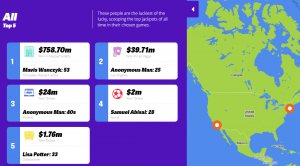
The UK is a nation of gamblers. With only 2% of us here in the UK never gambled, according to new research. The study looked into adults gambling habits. Subsequently looking at how often they place bets and what they’re gambling on. Furthermore the study also looked at what would encourage them to go public if they were to win £1M or more.
Gambling awareness is only at 2%. Shockingly 48% of UK Adults weren’t aware that the 2p and 10p slot machines is a form of gambling. Nor do 40.1% of those surveyed were aware that Bingo too is a form of gambling. This compared to 50.7% Millennials and Gen Z’s awareness that they do not consider online slots to be gambling, with 79.7% of Over 55’s thinking they do (class as a gambling activity)
Shockingly 11.9% of the same group of people (Millennials/Gen Z) do not consider sports bets, slots, scratchcards, casinos or the lottery to be a gambling activity.
During the study, it was found that women have less gambling awareness than men. With 11.1% of females incorrectly identifying any activities listed as gambling compared to 8.4% of males.
Lottery Jackpot.
When surveyed people were asked what would they do if they did win £1M or more. 12.3% wished to remain anonymous, believing it would be more futile. Believing going public would lead to more control. However, 5.9% said that they’d only go public to gain recognition for a large charitable donation.
It was discovered that those aged 18-24 were more likely to go public than the over 55’s (16.4% vs 3%). Furthermore, 2.5% of adults in the UK (1,263,210) would give up privacy for fame if they won a 7 figure amount. With twice as many men seek the limelight when compared to women (3.4% vs 1.8%)
Top five most common reasons that would encourage winners of £1m to go public include:
-
It would be futile to stay anonymous and I would rather have control over it (12.3%)
-
Recognition for a large charitable donation (5.9%)
-
To show others that winning the jackpot can be done (5.8%)
-
Gain help with accounting and banking (5.6%)
-
To draw attention for a business that might be set up with the winnings (5.3%)
Big Wins
The research study also took a look at the biggest wins around the world and took a look at which activity was the most rewarding to punters. It also went deeper and looked at who won the prizes and where in the world they took place.
In a not-so surprising stat Las Vegas has a lot of the biggest wins. 10 out of 50 of the biggest jackpots since 2000 all came from the gambling centre of the world. With 9/10 top 10 casino jackpots have been won in Vegas. Casinos paying out a total of $196,238,754 across them. One Vegas local even won $110,726 in Bingo!
Out of all the largest sums since 2000, Lottery wins account for 10 of them, when compared to other forms such as sports betting. With all of those wins totally an eye watering $3,989,005,710.
Surprisingly a HUGE number of UK adults have played the lottery at least once (63%) and 55% of UK adults play it at least once a year. With the same number (55%) having played as scratchcard at least once.
For more info and an interactive guide please click here!
Keep up to date with everything How To Kill An Hour by signing up to our newsletter by clicking here!
Let us know what you think of the show by clicking here!
Click here to subscribe to our YouTube Channel to see more amazing ways to kill time!
Follow us on Twitch by clicking here!
Footballers Wages: How Long Would It Take?
/in Entertainment/by billywrightFootballers wages are an incredible amount of money and would take the regular person like you or I hundreds of years to earn the amount of money they earn annually. For example Neymar the world’s most expensive footballer earns £775, 477 A WEEK! A WEEK! (Think I need to sit down!)
According to a report by Sporting Intelligence the average wage for a Premier League footballer was £2.4m annually, which is £46k per week, that is more than the average worker in the UK earns in a year! (BBC)
The guys over at BBC sport compiled a handy sporting calculator to figure just how long it would take for us to earn the same amount as your favourite footballing superstars. (Remember, this is without spending a penny to you know, actually live)
UK Government Plans To Ban Petrol/Diesel Cars By 2040
/in Gadgets / Tech/by billywrightReports by the Guardian and Financial Times have suggested that by 2040 the Government are setting up to ban the sale of Petrol and Diesel cars, as part of an air quality plan – this includes hybrids, electric only vehicles from 2040 would then only be possible. This is apparently a reaction to a recent government report which stated that smog kills at least 40,000 people each year in the UK.
However this would hinge on the ability to actually manufacture these electric cars and make them affordable to every car user in the country, the worldwide electric vehicle us currently facing potential shortages of battery materials such as lithium and cobalt.
Other countries are undergoing a similar plan with France having the same timescale and India hoping to introduce this ban by 2030.
McDelivery!
/in Entertainment, Lifestyle/by billywrightMcDonalds are finally doing delivery in the UK!
Well, starting in June, their testing it in a small area first, so don’t get too excited.
A spokeswoman for McDonalds told the Mirror:
“It is no secret we have been looking at the potential of delivery in recent months….This service is offered in other markets around the world and its growth within the UK continues to gather pace…..Listening to our customers, we know that this is a route they would like us to explore, and I can confirm that we are looking to launch a small delivery pilot this summer.”
Plus according to LadBible McDonalds are looking at external services too, so it could be through Uber or Deliveroo.
To listen to the guys chatting about this please click here!
US and UK ban cabin laptops on some inbound flights
/in Gadgets / Tech, Technology/by billywrightAccording to Sky News, the UK have followed the US in banning users from using electronic devices on in-bound flights from Muslim majority countries.
The details of the UK ban is unknown but it is said to be like the US restriction that bans all electronic devices larger than a smartphone.
The ban which impacts 9 airlines (Royal Jordanian, Egypt Air, Turkish Airlines, Saudi Arabian Airlines, Kuwait Airways, Royal Air Maroc, Qatar Airways, Emirates, and Etihad Airways.) from 8 countries (Jordan, Qatar, Kuwait, Morocco, United Arab Emirates, Saudi Arabia, and Turkey.) across 10 different airports. The reason for this ban is unknown.
To listen to the guys chatting about this please click here!


